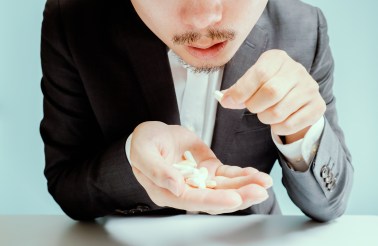It’s important for addiction discussions to note the difference between a disorder and a disease. Addiction is a disorder, not a disease, because it is a host of symptoms that are different for everyone. For instance, a disease has to be measurable and testable. You can take someone’s temperature and know that they have a fever, but you cannot “test” for addiction as it is a set of behaviors that trigger a set of symptoms. These behaviors may not always be conscious because of the changes in the brain due to substance use. But they were voluntary at least in the beginning. The level of personal responsibility is at stake in labelling addiction whether it’s a disorder or a disease.
Some addicts can conquer their addiction and others cannot. Some treatment techniques work for some addicts but they don’t work for others. These are not the hallmarks of a disease, which would involve a more uniform pathology and a treatment plan that would work universally. There’s no cure for addiction that’s why it is not classified as disease. They just learn a new set of behaviors to short-circuit the things that trigger their desire for drugs or alcohol. They have to abstain from these substances for the rest of their lives after recovery.
Addiction as a Disorder
In the discussion of addiction as a disorder, you should consider the stigma attached of seeking help. When people think of diseases, they think of illnesses that are contagious and they think of the diseased person as having some kind of moral failings that has brought the illness upon them. Addicts need help understanding that we live in a culture that encourages over consumption. Some people can handle that kind of message and others can’t. This does not make an addict a bad person.
It just means that they need better examples of people who have higher priorities and healthier goals. Our relationship to drugs and alcohol is really a disorder that exists at the cultural level rather than at the individual one, even though some people are capable of moderation. These differences among personalities accounts for another reason why addiction is a disorder. If it were a disease, then anyone exposed to the same cultural message of over consumption would also become an addict. However, only certain people predisposed to this kind of behavior find themselves in trouble.
Whether we call addiction a disorder or a disease changes nothing about how it is treated. Diseases are often things that people try to solve by themselves at home. If someone has a cold, he/she might just get some extra sleep and eat a bowl of chicken soup. However, by understanding addiction as a disorder, we are admitting that addicts need a larger support structure in order to change their consumption patterns.




